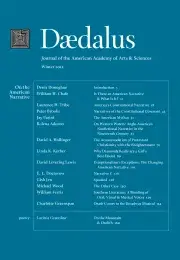America’s Constitutional Narrative
America has always been a wonderfully diverse place, a country where billions of stories spanning centuries and continents converge under the rubric of a Constitution that unites them in an ongoing narrative of national self-creation. Rather than rehearse familiar debates over what our Constitution means, this essay explores what the Constitution does. It treats the Constitution as a verb – a creative and contested practice that yields a trans-generational conversation about the meaning of our past, the imperatives of our present, and the values and aspirations that should point us toward our future. And it meditates on how this practice, drawing deeply on the capacious wellsprings of text and history, simultaneously reinforces the political order and provides a language for challenging its legitimacy, thereby constituting us as “We, the People,” joined in a single project framed centuries ago that nevertheless remains inevitably our own.
What is the Constitution? This question has puzzled many of its students and conscripted whole forests in the service of books spelling out grand theories of constitutional meaning. In their quest to resolve this enigma, scholars have powerfully illuminated both the Constitution’s inescapable writtenness and its unwritten extensions, its bold enumeration of rights and its construction of structural protections lest those rights become mere “parchment barriers,” and the centuries-long dance of text, original meaning, history and tradition, judicial doctrine, social movements, and aspirational values. They have documented its grandest achievements and its most appalling failures– aspects of its story that are also, in a deep sense, our achievements and failures as a nation. For the Constitution is more than just a historical artifact guarded by the National Archives, or a source of legal authority invoked by the courts to adjudicate cases. True to its name, it constitutes us as a people –e pluribus unum–and draws all of our cross-generational debates into a project set in motion by, and unfolding through, its written and unwritten dimensions. . . .
